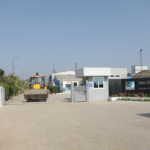Is a Non-Resident Indian (NRIs) from Rome, Italy eligible to take loan against property in India? This is the first question that hits our mind when discussing loans against property for NRIs from Rome, Italy in India. Yes, NRIs from Rome, Italy can take loan against property in India. In times of financial crisis, properties are the most valuable tangible assets that can help you in getting out of that crisis. Properties are essential to liquidity as you can convert them into cash when you are in a massive financial crisis. Suppose you are an NRI and have a property in India, like the other Indian residents. In that case, you can apply for an NRI loan against property to meet your expenses and overcome a financial crisis.
There are a variety of Indian banks or National Non-Bank Finance Companies (NBFCs) that offer loans against property to Non-Resident Indians. The loan against property provided to Non-Resident Indians is called an NRI loan against property. So, like other Indians, you can also use your property assets to meet your financial expenses. The NRI loan provided against property has flexible end usage. One can use it for any purpose like debt consolidation, home renovation, purchasing a new property, wedding expenses, education expenses, etc.
The process to apply for an NRI loan against property is relatively easy and similar to the process for a loan against property to Indian citizens. Though the process can differ a bit in terms of documentation and eligibility criteria, applying for an NRI loan against property is easy. Many prominent banks offer NRI loans against property at attractive interest rates and minimal paperwork. To get an NRI loan against property, you need to have a residential or commercial property in India in your name.
NRIs in Italy
Italy is a country located in central Europe on a peninsula that juts out into the Mediterranean Sea. Italy is sometimes described as a country shaped like a boot because it has some of the world’s most diverse and picturesque landscapes. The Alps, which are among the world’s most difficult mountains, rise at its vast crest. The highest points in Italy are located in Monte Rosa, which is in Switzerland, and Mont Blanc, which is in France. The western Alps command a panorama of Alpine lakes and glacier-carved valleys that runs all the way to the Po River and Piedmont. Tuscany, located to the south of the cisalpine region, is the country’s most well-known region.
The lofty Apennine Range emanates from the central Alps and runs the length of the country, widening around Rome to span nearly the whole width of the Italian peninsula. The Apennines are south of Rome and are bordered by two broad coastal plains, one facing the Tyrrhenian Sea and the other facing the Adriatic Sea. Wild boars, wolves, asps, and bears inhabit most of the lower Apennine chain, which is home to a diverse range of animals rarely found elsewhere in western Europe, including wild boars, wolves, asps, and bears. The southern Apennines are also tectonically unstable, with numerous active volcanoes, notably Vesuvius, which spews ash and steam into the air above Naples and its island-strewn harbour on a regular basis.
Capital:- Rome
Population:- 58,426,000(2022 Est.)
Official Language:- Italian
Total Area:- 302,068(Sq Km)
Monetary Unit:- euro (€)
Currency Exchange Rate:- 1rs= 0.012 Euro
The term “India–Italy relations” refers to the bilateral relationship between India and Italy. Trade has a long history dating back to the Roman Empire. India has a consulate general in Milan and an embassy in Rome. Italy maintains consulates general in Mumbai and Kolkata, as well as an embassy in New Delhi.
Indians make up about 0.2 percent of the Italian population, with an estimated 2 lakh Indians in Italy by 2022. In Italy, there are around 45 thousand people of Indian descent. Expats from India, particularly information technology workers, have lately arrived in the United States. About 1.60 lakh NRIs are expected to dwell in Italy by 2022.
Land of Italy
The Alps separate Italy from France, Switzerland, Austria, and Slovenia to the north. Aside from the Adriatic Sea to the northeast, the Ionian Sea to the southeast, the Tyrrhenian Sea to the southwest, and the Ligurian Sea to the northwest, Italy is bordered by the Mediterranean Sea. Plains, which are essentially restricted to the large northern triangle of the Po valley, represent just approximately one-fifth of the country’s total territory; the rest is almost evenly divided between hilly and mountainous regions, offering changes to the country’s typically moderate temperature.
Economy of Italy
The Italian economy transformed from one of the weakest in Europe to one of the most powerful. Its advantages include its metallurgical and engineering industries, while its limits are a lack of raw materials and energy sources. Imports account for more than four-fifths of Italy’s energy requirements. Despite this, the chemical sector continues to develop, and textiles remain one of Italy’s most significant industries.
Manufacturing exports grew at a fantastic rate as a result of a strong entrepreneurial inclination mixed with open trade policies following the war, but a complex bureaucracy and poor planning hampered an equitable economic expansion throughout the country. The importance of services, specially tourism, cannot be overstated. In order to achieve parity with other EU countries, Italy got its high inflation under control and implemented more conservative fiscal policies, including massive privatisations, near the close of the twentieth century.
Cultural life
With the growing impact of television and other forms of mass media, as well as a nationally shared educational curriculum, many regional peculiarities are fading. Though Italians have long considered themselves citizens of their town or city first, then their region or province, and so on, this is changing as Italy becomes more integrated into the European Union (EU) and Italians begin to see themselves as members of a supranational community made up of many peoples.
What is meant by loans against the property for NRIs from Rome, Italy in India?
Non-Resident Indians from Rome, Italy who are owners of residential or commercial property in India can apply for an NRI loan against property at any prominent bank providing this service. The best part about NRI loans against property is that the banks offer them at attractive interest rates with minimal paperwork to ensure the applicant’s comfort. The individual can apply to various leading banks like Axis Bank, State Bank of India, Federal Bank, IndusInd Bank, and many more. It would be best to compare these banks’ interest, processing fees, and loan tenure before applying for an NRI loan against property. It would help if you always chose a bank after doing a lot of research and which best suits your requirements. Remember that the interest rates and other charges of NRI loans against property are subject to periodic changes without prior notification, so you should consult your bank and carefully read all the documents before applying for the loan.
Eligibility criteria to apply for an loans against property for NRIs from Rome, Italy in India

To apply for an loans against property for NRIs from Rome, Italy in India, the individual needs to meet some essential criteria, which are as follows: –
First of all, the Non-Resident Indian or the person of Indian Origin from Rome, Italy should have a residential or commercial property in India in their name to apply for an NRI loan against the property. In case the residential or commercial property of the NRI is not registered in their name, they can use the property registered in the name of the spouse, parents, children, siblings, etc.
The NRI loans applied under loans against property should be liquidated before the principal borrower reaches the maximum age issued or defined by the lender or bank.
Besides this, the bank should define the minimum net monthly income of the Non-Resident Indian who is applying for the loan.
Lastly, the minimum age required to apply for an NRI loan against property is 21 years, and the maximum age is 65 years.
Remember that the above the given eligibility criteria can vary from lender to lender or bank to bank. The above-given eligibility criteria are the basic eligibility requirements that every bank demands. Still, there is a high possibility that the bank or lender has some additional terms and conditions that an individual or applicant is required to fulfill.
Important documents required to apply for a loan against property as an NRIs from Rome, Italy in India
Congratulations if you pass the eligibility criteria and meet all the requirements. If you are eligible to apply for an loans against property for NRIs from Rome, Italy in India, you need to provide certain documents to apply for a loan against property as an NRIs from Rome, Italy in India. The following are the documents that an individual is required to submit while applying for the NRI loans against property in India: –
First, the individual must fill out a loan against property application form.
After that, the applicant is required to submit identity proof. One can use their Aadhar card, passport, driving license, voter ID card, and Government of India-issued photo ID to prove their identity.
Next, the individual is required to have a valid visa or work permit copy or an Overseas Citizen of India card.
Besides this, the individual must provide a passport with relevant visa stamps.
The applicant must also submit a copy of their Permanent Account Number (PAN) card.
Next, you have to submit your signature proof; for that, you can use your Permanent Account Number (PAN) card but certificate (Secondary School Certificate) SSC mark sheet or passport.
Along with this, the individual needs to submit a copy of one of the following documents; Aadhar card, driving license, and latest utility bill. The utility bills can be any bill; it can be an electricity bill, gas bill, telephone bill, or if you don’t have any utility bill, then the individual can also show their property tax receipt.
Lastly, the applicant is required to submit his income proof.
Salaried applicant
If you are a salaried applicant, you need to submit your salary slips, 6 months statements of Non-Residential External and Non-Residential Ordinary Bank account, and form 16.
Self-Employed applicant
If the individual is self-employed, the applicant must submit two years of Income Tax Return(ITR), computation of income, and the tax audit report. The individual is required to present a tax audit report if the gross turnover of the income exceeds one crore rupees or the gross receipt exceeds twenty-five lakh rupees. The applicant is also required to submit a profit and balance sheet, which should be verified by a chartered accountant, and a self-attested document stating the nature of the business.
The above-given documents required to apply for an NRI loan against property are generic in nature and can differ from lender to lender or bank to bank. Although there are high chances that the documentation will differ from bank to bank or lender to lender, the above-given documents are the basic documents that every bank or lender demands while providing an NRI loan against property.
The process to apply for an loans against property for NRIs from Rome, Italy in India

If you want to apply for an loans against property for NRIs from Rome, Italy in India, then you should follow the below-given three steps to get NRI loans from a good bank that meets your requirements. Follow the below-given steps to apply for an loans against property for NRIs from Rome, Italy in India as an NRI: –
Step one: Research thoroughly
This is the mandatory and the most important step. It would help if you did more and more research before applying for a loan against property in India. It is one of the most important steps that many people avoid or do not focus on; that’s why they cannot find the ideal bank to apply for an NRI loan against property for themselves. We know that there are many fishes in the sea, but you can only choose the best for yourself if you have researched enough.
A variety of banks offer NRI loans against property, but not everyone meets your requirements. Each bank will have its own set of terms and conditions, interest rates, and repayment options, so to find your perfect banking partner that suits your requirement, one should always research thoroughly. You should always choose a bank you can afford and comfortably repay the loan. After finalizing a few banks, you can also talk to their customer care representatives to get answers to all your queries. We would recommend you also visit the nearest branch of that particular bank.
Step two: Assemble all the required documents
You need a loan urgently, but some of you are documents are missing. Even the imagination of the situation is horrible. To apply for an NRI loan against property, an individual is required to submit a whole bunch of documents; especially if you are an NRI, you need to submit a lot of documents like identity proof, address proof, income proof, etc. So, to keep the process easy and simple, you should always assemble the required documents in advance to avoid a last-minute fuss. The documentation may vary depending on banks and lenders, so we recommend you visit the bank and ask them about the necessary documents you need to submit while applying for the loan. You can also visit the bank’s website for the same. In the article, we have already mentioned the possible documents that a bank will ask you to produce while applying for an NRI loan against the property; we will request you to read the article from the beginning to the end carefully.
Step three: Fill out the application form
After doing all the necessary research and collecting your documents, you should fill out the application form for a loan against the property. You can apply for an NRI loan against property by filling out the form online, as the majority of banks facilitate their consumers, or you can directly visit the bank branch for the same. Sooner or later, the individual is required to visit the bank in person and submit their documents, so we suggest you go to the bank and fill out the form and then submit all the necessary documents.
See how easy, convenient, and hassle-free it is to apply for loans against property for NRIs from Rome, Italy in India.
Benefits of applying for loans against property for NRIs from Rome, Italy in India
There are multiple benefits of applying for an loans against property for NRIs from Rome, Italy in India.
If the individual applies for an NRI loan under a loan against property in India, then the individual is not required to submit any collateral or security. This is because the individual is taking an NRI loan under loan against property in India, so the residential and commercial property that the individual is using to apply for the loan serves as security or collateral.
Secondly, you can avail up to 15 years of loan tenure or even more than that if you apply under the NRI loan against property.
The bank will provide you with a loan on different kinds of property; it can be a commercial property, residential property, home, shop anything.
Besides this, many banks offer attractive interest rates, so it is advised to compare the interest rates of different banks before applying for a loan.
Some banks or lenders allow the applicant to transfer their existing loan. It means that if they already have a loan in any other bank, they can transfer it to their current bank in which they are applying for an NRI loan against property. For example, Axis Bank allows the transfer of the existing loan. That’s why we always suggest you compare the policies and benefits of all the banks before applying for a loan.
Conclusion of Loan Against Property as an NRIs from Rome, Italy in India
An NRI loan against property is one of the secured loans that is sanctioned against the asset pledged as collateral by the applicant. You can use any of your assets, your land, a house, or any other residential or commercial property to apply for an in against property in India. However, you should know that the asset remains collateral with the lender or bank until the applicant repays the entire loan against the property amount. A loan against property is considered the safest by banks and lenders because they have property papers as collateral, and the bank is authorized to seize your property in case you cannot repay the loan.
We will advise you to calculate and compare the interest rates, loan tenure, repayment options, and terms and conditions of different banks before applying for NRI loans in any bank. If you don’t have a property in your name, then you can use the property of your spouse, children, or siblings to apply for an loans against property for NRIs from Rome, Italy in India. You are requested to select the bank after thorough research and always choose a bank that meets your requirement and profit appetite. If you have any queries or doubts, you can consult with your bank or lender. The applicant should meticulously read the documents and terms and conditions provided by the bank or lenders to avoid any fuss.
Frequently asked questions about loans against property
What is the procedure for applying for a loan against property as an NRIs from Rome, Italy in India?
To apply for a loan against property in India, you can visit the branch of the respective bank, or you can also do online research and fill out the application form. The process of NRI loan against property is similar to the process of loan against the property of Indian residents; the slight difference between both is the eligibility criteria and documents needed to apply for a loan against property as an NRI.
Which bank is the best to apply for an loans against property for NRIs from Rome, Italy in India?
Every lender and bank has its own set of rules, interest rates, the quantum of loans, lending tenure, repayment options, and terms and conditions. So before applying for a loan against property in India, the applicant should always compare the repayment options, loan tenure, the quantum of the loan, interest rates, repayment options, and the terms and conditions of banks and lenders. It is best to choose the bank that full fill or meets your requirements. Besides this, you should always clear all your doubts from the banker or lender before applying for the NRI loan against property.
When applying for an loans against property for NRIs from Rome, Italy in India, what maximum loan amount can one get?
An individual can easily avail NRI loan against property in any leading bank. The amount from 5 lakh rupees to 15 crore rupees is available on an NRI loan against property.
Can I apply for an loans against property for NRIs from Rome, Italy in India if I already have an existing loan?
Yes, if an individual already has a personal loan, they can still apply for an loans against property for NRIs from Rome, Italy in India. There is no boundation, and the majority of the bank will accept your loan request because you are still eligible to apply for a loan against property. Though some banks have different policies or eligibility criteria in those banks, you have to check and ask this particular question. Otherwise, the majority of banks allow applying for another loan if the applicant already has an existing NRI personal loan.
What is the security or collateral an NRI must submit while applying for a loan against property?
While applying for a personal loan, the individual must have collateral or security in case of a secured personal loan. But in an NRI loan against property, the applicant’s residential or commercial property is the security as the individual is pledging its Indian residential or commercial property while applying for the loan. So, because you already applied for the loan under loan against property, you don’t need to submit any collateral or security in the bank.








































